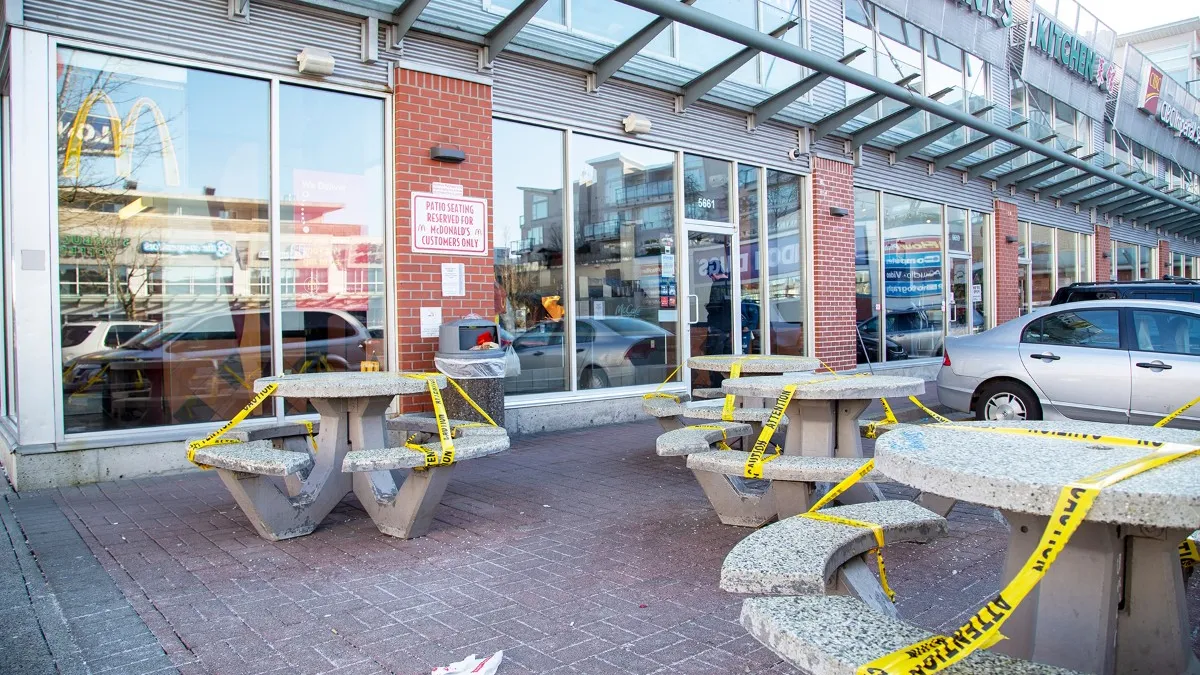Dive Brief:
- McDonald's plans to increase its spending on U.S. marketing by an estimated $100 million and a similar amount in several of its biggest international markets as the fast-food giant readies a recovery from coronavirus-related shutdowns, Restaurant Business reported. The publication based its estimate on how much the company pledged to spend compared with revenue.
- CEO Chris Kempczinski said in a video message to employees and franchisees that the chain would spend the equivalent of a month of marketing support in wholly owned markets, which include major regions like the U.S., Canada, Australia and much of Europe. Its marketing spending typically is 3% of sales, which hit $40 billion last year, Restaurant Business reported.
- McDonald's also plans to provide more financial help to locations that were most negatively affected by lockdowns lasting more than two months, and in areas that have fewer restaurants with drive-thru service that has helped to sustain its U.S. operations during the pandemic.
Dive Insight:
McDonald's plans to ramp back up its marketing spending is a positive sign for a company that analysts say is well positioned to recover from the coronavirus pandemic as lockdowns relax in the U.S. and international regions. Fast-food chains like McDonald's can provide good value to consumers who are mindful of their spending during an economic slowdown, and many chains already had built up takeout and delivery services to provide greater convenience ahead of the pandemic that would force the closure of dining areas. McDonald's this week announced plans to introduce safety standards at restaurants that are allowed to reopen, setting the stage for a potential rebound from a drastic dip in sales.
It's not clear what McDonald's future marketing promotions will look like, though the company is likely to highlight safety precautions early on to address consumer concerns about dining in restaurants. Almost three fourths (73%) of consumers said they would be comfortable visiting a restaurant that frequently sanitized "customer touch points," making hygiene the foremost concern, researcher Technomics found in a survey this month. The study also found that many consumers will be cautious about returning to reopened restaurants altogether.
Luring people back to reopened dining rooms could lay the groundwork for a stronger rebound in the second half of the year. McDonald's reported a 22% plunge in same-store sales — a key metric of business health for restaurants — for March from a year earlier as the pandemic led municipalities to order the partial or full closures of restaurants. In the U.S., same-store sales dropped 25% from mid-March to mid-April. McDonald's expected only a 20% dip for April, indicating that it already may have seen the worst financial effects of the lockdowns, management said in a conference call on April 30 to discuss Q1 earnings.
McDonald's is somewhat fortunate in that 90% of its U.S. restaurants boast drive-thru operations that allow for serving customers while complying with social distancing mandates. The company last month reported that drive-thrus made up 90% of current sales, though that percentage is likely to shrink as more dining rooms open in the next few months. Before the pandemic trickled over the U.S., drive-thrus made up about two-thirds of all sales in the country, the company reported.
While drive-thrus are key to McDonald's, the company in the past few years has made delivery service a central part of its promotions to appeal to a younger generation of on-the-go consumers. Last year, the burger chain teamed with DoorDash to celebrate the nationwide rollout of McDelivery with a sweepstakes and steep discounts. The promotion came two weeks after Uber Eats targeted McDonald's customers with an offer of free branded loungewear for those who placed an order at dinnertime. Those moves positioned the company to have the infrastructure needed for a surge in delivery orders as homebound consumers look to avoid visiting stores and restaurants.













